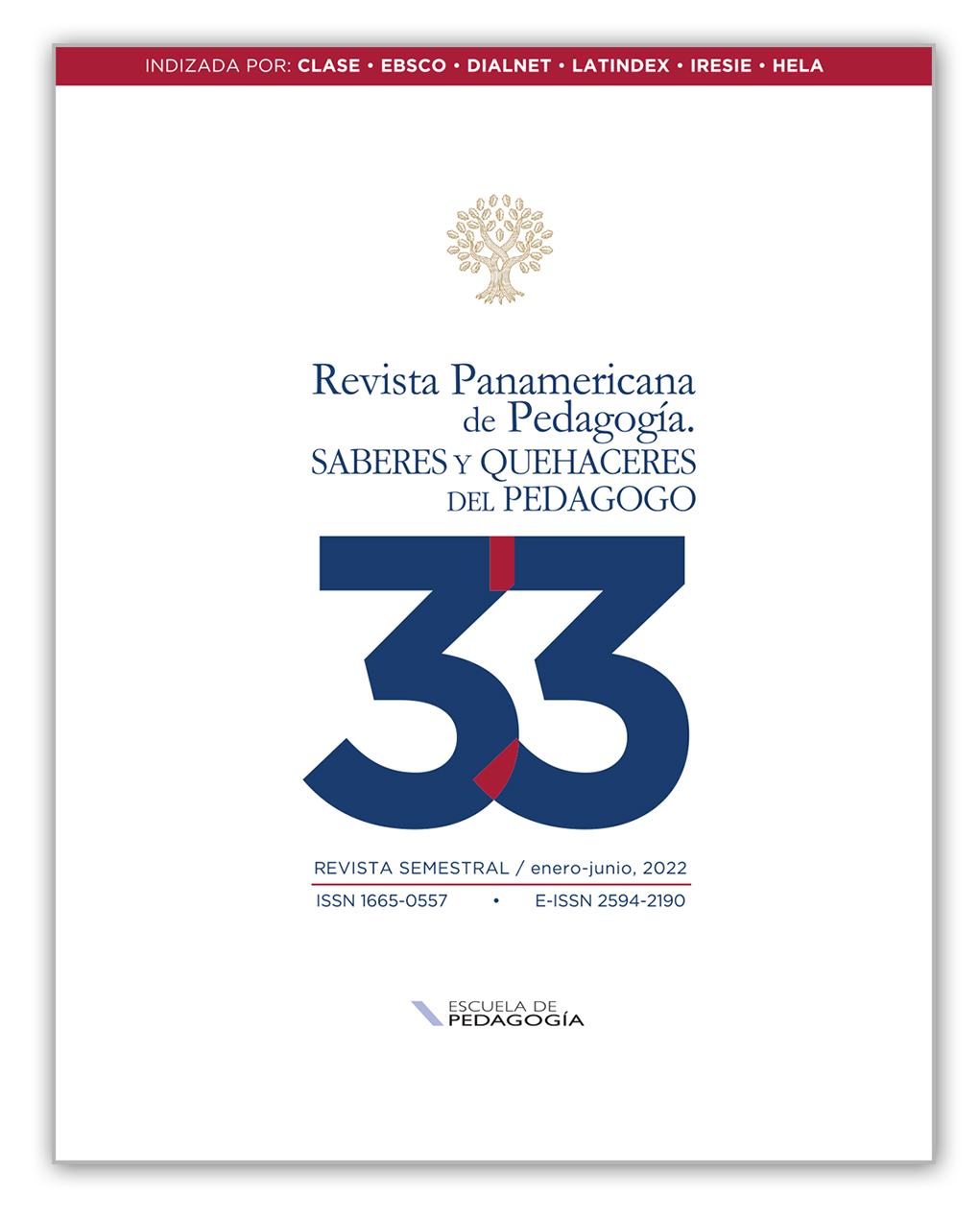Published 2021-12-31 — Updated on 2021-12-31
How to Cite
Copyright (c) 2021 Revista Panamericana de Pedagogía

This work is licensed under a Creative Commons Attribution-NonCommercial-ShareAlike 4.0 International License.
Downloads
Altmetrics
Abstract
Reflection on issues related to moral education, not only in its theoretical conception, but in its implementation within the classroom, is essential for the right exercise of the teaching profession. For this reason, the contributions made by Aristotle and John Stuart Mill to moral education are analyzed to build a pedagogical reflection that facilitates the understanding of the moral development of students in the current educational context. From a philosophical perspective, an analytical method is used based on the study of the postulates of the ethics of virtue and utilitarianism; specifically on issues related to the moral development of subjects, happiness, or the importance of reasoning in the face of moral conflicts to understand what contributions can be applied to current education. The main conclusions drawn after the study are the importance of critically reflecting in schools on concepts such as prudence, virtue, happiness, or citizenship; as well as the richness that the incorporation of concepts such as virtue brings to the educational debate. In addition, developing virtues in the student body will allow them to know the good, wish it and practice it.
References
- Annas, J. (1998). Virtue and Eudaimonism. Social Philosophy & Policy Foundation, 37-55.
- Aristóteles (2019). Ética a Nicómaco y Ética a Eudemo. Gredos.
- Berkowitz, M. W. (1995). Educar la persona moral en su totalidad. Revista Iberoamericana de Educación, 8, 73-101.
- Bernal, A. (1998). Educación del carácter, educación moral: propuestas educativas de Aristóteles y Rousseau. EUNSA.
- Bernal, A., González-Torres, M. C. y Naval, C. (2015). La educación del carácter. Perspectivas internacionales. Participación educativa, 35-45.
- Brown, D. G. (1973). What is Mill’s Principle of Utility? Canadian Journal Of Philosophy, III(1), 1-12.
- Carr, D. (2016). Virtue and Knowledge. Philosophy, 91, 375-390. https://doi.org/10.1017/S003181911600005X
- Edwards, R. B. (1985). J. S. Mill and Robert Veatch’s Critique of Utilitarianism. The Southern Journal of Philosophy, 23(2), 181-200.
- Edwards, R. B. (1986). The Principle of Utility and Mill’s Minimizing Utilitarianism. The Journal of Value Inquiry, 20, 125-136.
- Finlay, G. (2017). Mill on Education and Schooling. In A Companion to Mill (Eds. Christopher Macleod y Dale E. Miller). John Wiley & Sons, Inc.
- Fowers, B. J. (2012). An Aristotelian Framework for the Human Good. Journal of Theoretical and Philosophical Psychology, 32(1), 10-23. https://doi.org/10.1037/a0025820
- Fuentes Jiménez, J. R. (2010). Educación para la libertad en Stuart Mill. Revista Miscelánea de Investigación, 23, 139-164.
- García Amilburu, M. y García Gutiérrez, J. (2012). Filosofía de la educación. Cuestiones de hoy y de siempre. Narcea y UNED.
- Gaus, G. F. (1980). Mill’s Theory Of Moral Rules. Australasian Journal of Philosophy, 58(3), 265-279.
- Gozálvez, V. y Jover, G. (2016). Articulación de la justicia y el cuidado en la educación moral: Del universalismo sustitutivo a una ética situada de los derechos humanos. Educación XX1, 19(1), Article 1. https://doi.org/10.5944/educxx1.15588
- Jacobson, D. (2008). Utilitarianism without Consequentialism: The Case of John Stuart Mill. Philosophical Review, 117(2), 159-192.
- Jamieson, D. (2007). When Utilitarians Should Be Virtue Theorists. Utilitas, 19(2), 160-183.
- Kohlberg, L. (1992). Psicología del desarrollo moral. Desclée de Brouwer.
- Kreider, S. E. (2010). Mill on Happiness. Philosophical paper, 39(1), 53-68.
- Kristjánsson, K. (2015). Aristotelian Character Education. Routledge.
- Lickona, T. (1991). Educating for character: How our schools can teach respect and responsibility. Bantam.
- Lyons, D. (1976). Mill’s Theory of Morality. Noûs, 10(2), 101-120.
- Mill, J. S. (1828). Speech on Perfectibility. https://www.utilitarian.org/texts/perfectibility.html
- Mill, J. S. (2009). Autobiography of John Stuart Mill. The Floating Press.
- Mill, J. S. (2014a). El utilitarismo. Un sistema de la lógica (Libro VI, capítulo XII). Alianza Editorial.
- Mill, J. S. (2014b). Sobre la libertad. Akal.
- Nakhnikian, G. (1951). Value and Obligation in Mill. Ethics.
- Nussbaum, M. (2004). Mill between Aristotle & Bentham. Daedalus, 133(2), 60-68.
- Nussbaum, M. (2010). Sin fines de lucro. Por qué la democracia necesita de las humanidades. Katz editores.
- Peterson, C. & Seligman, M. E. P. (2002). The values in action (VIA) classification of strengths. A life worth living: Contributions to positive psychology, 29-48.
- Riley, J. (2017). Mill on Utilitarian Sanctions. In Christopher Macleod & Dale E. Miller (Eds.). A Companion to Mill. John Wiley & Sons, Inc.
- Ryan, A. (1970). The Philosophy of John Stuart Mill. MacMillan.
- Schwartz, B. & Sharpe, K. (2010). Practical Wisdom: The Right Way to Do the Right Thing. Penguin.
- Vigo, A. G. (2012). Deliberación y decisión según Aristóteles. Tópicos, 43, 51-92.
- Viner, J. (1949). Bentham and J. S. Mill: The Utilitarian Background. The American Economic Review, 39(2), 360-382.
- West, H. R. (1982). Mill’s «Proof» of Utility. In Miller & Williams (Eds.), The Limits of Utilitarianism. University of Minessota Press.
- Williams, M. M. (2000). Models of Character Education: Perspectives and Developmental Issues. Journal Of Humanistic Counseling, Education And Development, 39, 32-40.
- Xiem, N. T. (2018). John Stuart Mill’s Liberal thought on Education and the Dissemination of Education in Enforcing the Right of Liberty. American Journal of Educational Research, 6(5), 570-577.
- Zagal, H. (2012). Apetito recto, prudencia y verdad práctica Las pautas de la eupraxía en la Nicomáquea. Metafísica y persona. Filosofía, conocimiento y vida, 9, 91-111.


